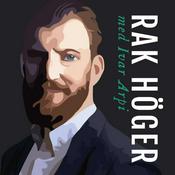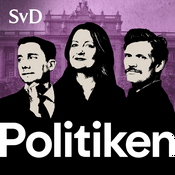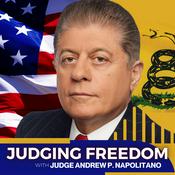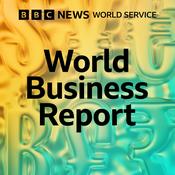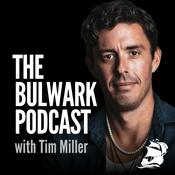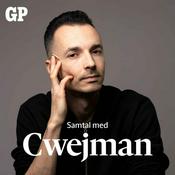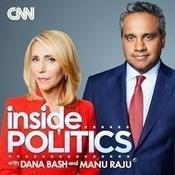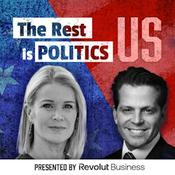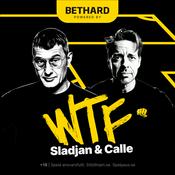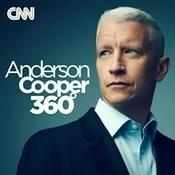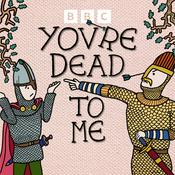Tillgängliga avsnitt
5 resultat 444
- Bonus: Evan Gershkovich - a year since my friend was jailed in RussiaThe Wall Street Journal reporter, who is the first US journalist charged with spying in Russia since the Cold War, has now been imprisoned for a year. His detention has been repeatedly extended and he is yet to face trial. His family, colleagues and the US government vehemently deny the accusations.We talk with two BBC journalists who know Evan - Will Vernon and James Beardsworth. We hear what he’s like as a friend and journalist, and what his detention means for reporting on Russia.The Global Story brings you trusted insights from BBC experts around the world, with Katya Adler. We’re keen to hear from you, wherever you are in the world. #TheGlobalStory We want your ideas, stories and experiences to help us understand and tell The Global Story. Email us at [email protected] You can also message us or leave a voice note on WhatsApp on +44 330 123 9480.Today’s podcast was made by Bethan Ashmead Latham, Alice Aylett Roberts and Richard Moran. The technical producer was Mike Regaard. The assistant editor is Sergi Forcada Freixas and the senior news editor is Jonathan Aspinwall.--------24:27
- Is the future of journalism in crisis?Over the past year thousands of journalists have lost their jobs as mass media news organisations struggle to make ends meet. Ad revenue is down, many publishers are struggling to gain subscribers, and social media has resulted in plummeting traffic to homepages. More than a third of people worldwide say they sometimes or often actively avoid the news, many citing their mental health and concerns that they can’t do anything about the problems reported. Meanwhile advancements in artificial intelligence promise rapid changes to the way journalism is done. So, what’s the future of journalism? Shaun Ley is joined by:Emily Bell, director of the Tow Center for Digital Journalism at Columbia Journalism School Benjamin Toff, assistant professor of journalism at the University of Minnesota, a research associate at the Reuters Institute and co-author of the book: ‘Avoiding the News: Reluctant Audiences for Journalism’ LaSharah S. Bunting, CEO and executive director of the Online News AssociationProduced by Max Horberry and Paul Schuster(Photo: Getty)--------48:55
- Bonus: Hidden reality of frontline combat through the eyes of Ukraine's soldiersA bonus episode from The Global Story podcast.In a new BBC documentary, a single Ukrainian infantry company find themselves in a life or death battle to defend the eastern front against intense Russian attacks.Jamie Roberts tells us how he managed to get such rare access and what the fate of these men tells us about the reality of the frontlines in Ukraine.The Global Story brings you trusted insights from BBC journalists worldwide. We’re keen to hear from you, wherever you are in the world. We want your ideas, stories and experiences to help us understand and tell The Global Story. Email us at [email protected] You can also message us or leave a voice note via WhatsApp on +44 330 123 9480. #TheGlobalStoryThe Global Story is part of the BBC News Podcasts family. The team that makes The Global Story also makes several other podcasts, such as Americast and Ukrainecast, which cover US news and the war in Ukraine. If you enjoy The Global Story, then we think that you will enjoy some of our other podcasts too. To find them, simply search on your favourite podcast app.This episode was made by Neal Razzell, Peter Goffin, Laurie Kalus, and Rachel Hagan. The technical producer was Hannah Montgomery. The assistant editor is Sergi Forcada Freixas and the senior news editor is Jonathan Aspinwall.--------26:40
- Bonus: Sam Bankman-Fried's multibillion dollar FTX fraudA bonus episode from The Global Story podcast.Sam Bankman-Fried was the golden boy of cryptocurrency. He was dubbed the king and saviour of the industry. But this week he will be sentenced to possibly decades in prison for fraud and money laundering, and his firm, FTX, went bankrupt.Joe Tidy, the BBC's cyber correspondent tells us about SBF - the man he interviewed before his trial. And Erin Delmore, our North America business correspondent explains what his downfall means for the future of crypto.The Global Story brings you trusted insights from BBC journalists worldwide. We’re keen to hear from you, wherever you are in the world. We want your ideas, stories and experiences to help us understand and tell The Global Story. Email us at [email protected] You can also message us or leave a voice note via WhatsApp on +44 330 123 9480. #TheGlobalStoryThe Global Story is part of the BBC News Podcasts family. The team that makes The Global Story also makes several other podcasts, such as Americast and Ukrainecast, which cover US news and the war in Ukraine. If you enjoy The Global Story, then we think that you will enjoy some of our other podcasts too. To find them, simply search on your favourite podcast app.This episode was made by Peter Goffin, Neal Razzel, Beth Timmins and Alix Pickles. The technical producer was Matt Hewitt. The assistant editor is Sergi Forcada Freixas and the senior news editor is Jonathan Aspinwall.--------26:39
- Bonus: The curse of the world's fastest growing economyA bonus episode from The Global Story podcast.When Guyana discovered huge offshore oil reserves in 2015, it transformed the prospects of a country which had a been an economic and political backwater. But, as one of the countries most vulnerable to the impacts of climate change, will drilling for oil be a windfall or a curse in the long run? Stephen Sackur has just returned from Guyana for the BBC's HardTalk programme where he spoke to the people making the decisions about Guyana's future, and the people who will have to live with the consequences. The Global Story brings you trusted insights from BBC journalists worldwide. We’re keen to hear from you, wherever you are in the world. We want your ideas, stories and experiences to help us understand and tell The Global Story. Email us at [email protected] You can also message us or leave a voice note via WhatsApp on +44 330 123 9480. #TheGlobalStory The Global Story is part of the BBC News Podcasts family. The team that makes The Global Story also makes several other podcasts, such as Americast and Ukrainecast, which cover US news and the war in Ukraine. If you enjoy The Global Story, then we think that you will enjoy some of our other podcasts too. To find them, simply search on your favourite podcast app. This episode was made by Richard Moran. The technical producer was Matt Hewitt. The assistant editor is Sergi Forcada Freixas and the senior news editor is Jonathan Aspinwall.--------27:15
Fler podcasts i Nyheter
Trendiga poddar i Nyheter
Om The Real Story
Global experts and decision makers discuss, debate and analyse a key news story.
Podcast-webbplatsLyssna på The Real Story, The Rest Is Politics och många andra poddar från världens alla hörn med radio.se-appen
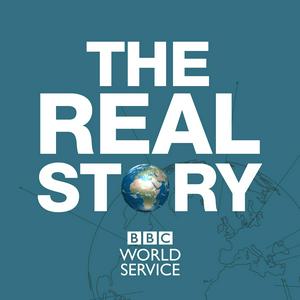
Hämta den kostnadsfria radio.se-appen
- Bokmärk stationer och podcasts
- Strömma via Wi-Fi eller Bluetooth
- Stödjer Carplay & Android Auto
- Många andra appfunktioner
Hämta den kostnadsfria radio.se-appen
- Bokmärk stationer och podcasts
- Strömma via Wi-Fi eller Bluetooth
- Stödjer Carplay & Android Auto
- Många andra appfunktioner


The Real Story
Skanna koden,
ladda ner appen,
börja lyssna.
ladda ner appen,
börja lyssna.








